Your cart is empty
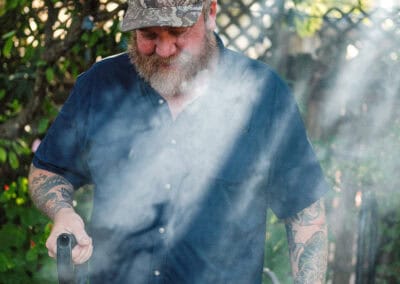
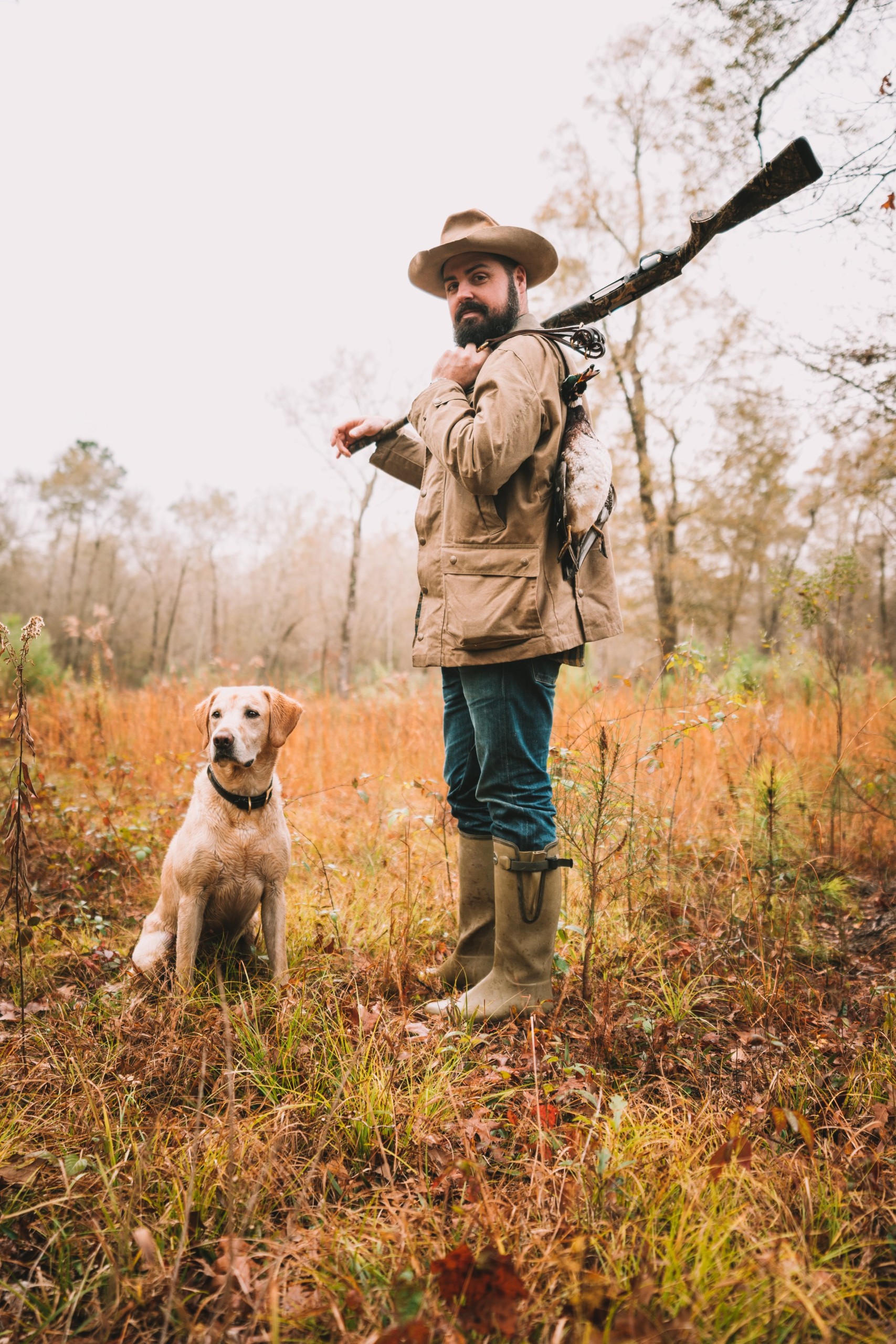
Not a CHEF FEATURE
INTERVIEW BY Tyler Sharp
PHOTOS BY John Dunaway
PRESENTED BY Fat Tire
Restaurateur, farmer, musician, cocktail aficionado, waterfowl addict, and man of action, Morgan Weber has lived a variety of lives, each more interesting than the next. Hailing from South Texas, his culinary curiosity led him to Houston, where he helped launch an award-laden list of restaurants and bars with his like-minded business partners under the moniker Agricole Hospitality. They have earned staying power with establishments such as Revival Market, Coltivare, Night Heron, Indianola, Vinny’s, Miss Carousel, and Eight Row Flint — which was named as one of the best new bars in the country by Playboy in 2016 — earning the respect and taste profiles of many along the way. I’ve had the privilege of sharing a few duck blinds, campfires, wild game dinners, and more than a few libations with Morgan, and we had the chance to catch up at my home in Montana recently to retrace the path that led him here. Personable, gregarious, and known for his heavy pouring hand, Mr. Weber is a class act gentleman, and one to watch in the wild game cooking space.
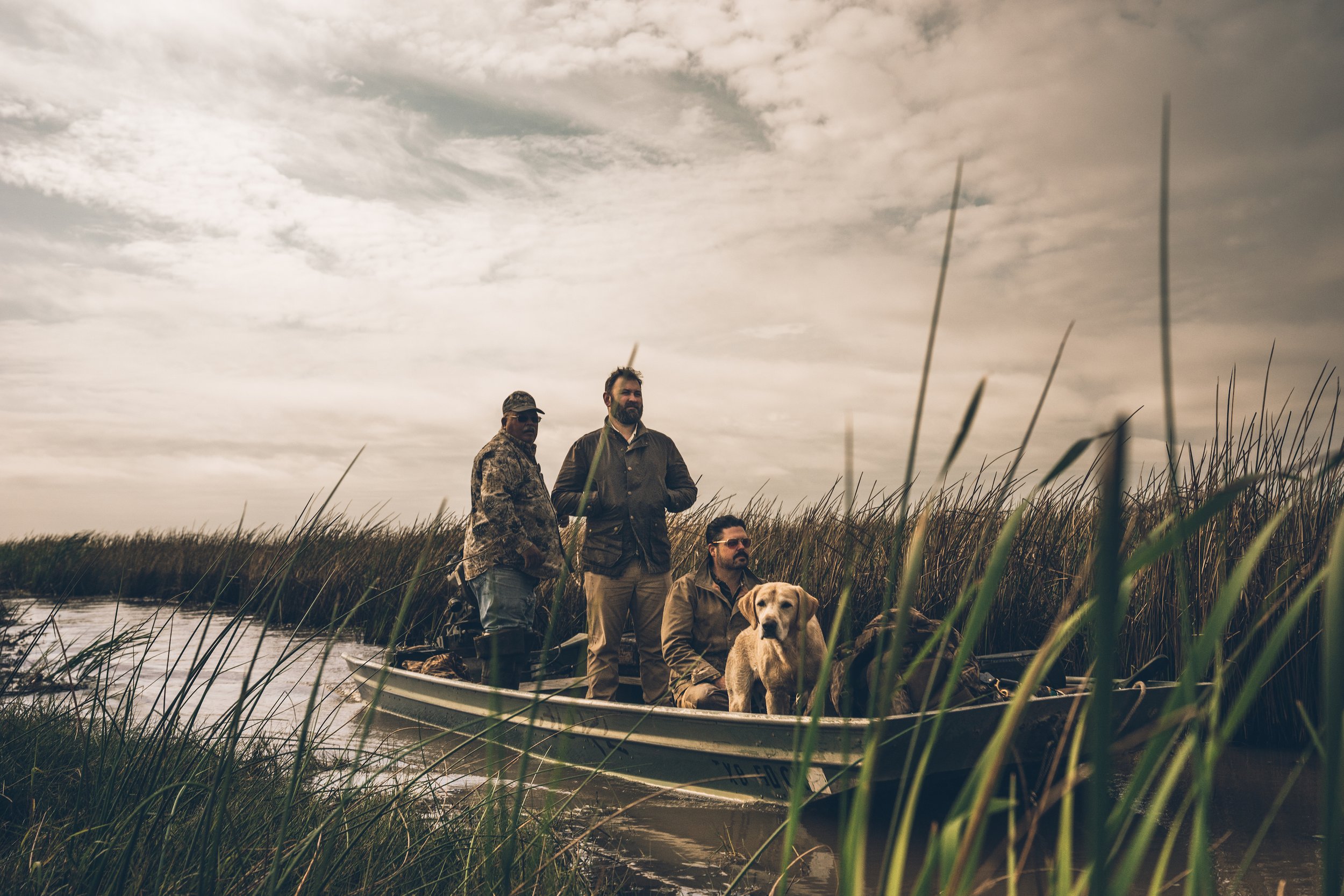
TYLER SHARP — You’re not a typical chef. In fact you don’t even call yourself a chef. Give us a little background on your relationship with food and cooking.
MORGAN WEBER — No, I am definitely not a chef. I am a restaurateur that is around a boatload of amazing cooks, and I have just been able to glean their mentalities toward food, the way they approach cooking, and how they plan and efficiently execute that stuff. Their skillset and mine are extremely different. So I feel like I have an interestingly filtered perspective, because I am coming at this as a non-professional cook, but I get to be around pros all the time and see how they operate. To me, that’s the most valuable education you could ever ask for.
I grew up in a small rural town, and the restaurant options were very limited, so most nights my mom cooked dinner for my family. She always had a garden, and my grandmother grew tomatoes and tended a 15-acre garden. She could feed their family year-round, which takes a lot of planning because you have to spread out your planting of specific vegetables so they don’t all come together at the same time. In two generations that skill set has totally gone away, and the gardens that we plant now are for a hobby and we don’t fully rely on them.
So I was around them cooking all the time, and eventually, I got really fascinated with varieties of food. Take strawberries, for example. Strawberries can be transcendentally awesome, but they can also really suck. What makes them good or bad? Where do those come from? What makes them sweeter versus watery? It’s just a curious learning process for me, and I’ve approached food that way. My whole life has been this unintentional search to find what the best of anything is. I started to go down a rabbit hole trying to find out what the best breed of pig was for what we wanted to do with it. I wanted to find the best lamb, the best chicken, the best beef, and buy those genetics and play the long game. I love those long projects where you slowly start seeing things get better and better.
Over the course of about three years, I was selling whole animals to every restaurant in Texas and New Orleans that I wanted. I was driving all over the state to get things killed in one place and maybe processed in another because they did it better. It was just this constant pursuit of the best, and after four years of doing that I thought, “Man, I have to take this out of the hands of different rural processors all over the state. I want to manage that part myself.”
So with a chef friend of mine, we opened Revival Market in 2011, which was our first concept as Agricole Hospitality — the name of our restaurant group. It was a specialty butcher shop, and we made 100% of everything from scratch. It was a big learning experience, and that restaurant is still open today. Though it has evolved at least a half dozen times over the last decade, it’s still near and dear to my heart. Since then, we’ve opened a handful of restaurants and bars, but we just try to be really sensitive to what our area and our backyard wants, and we try to give that in a really sincere way.
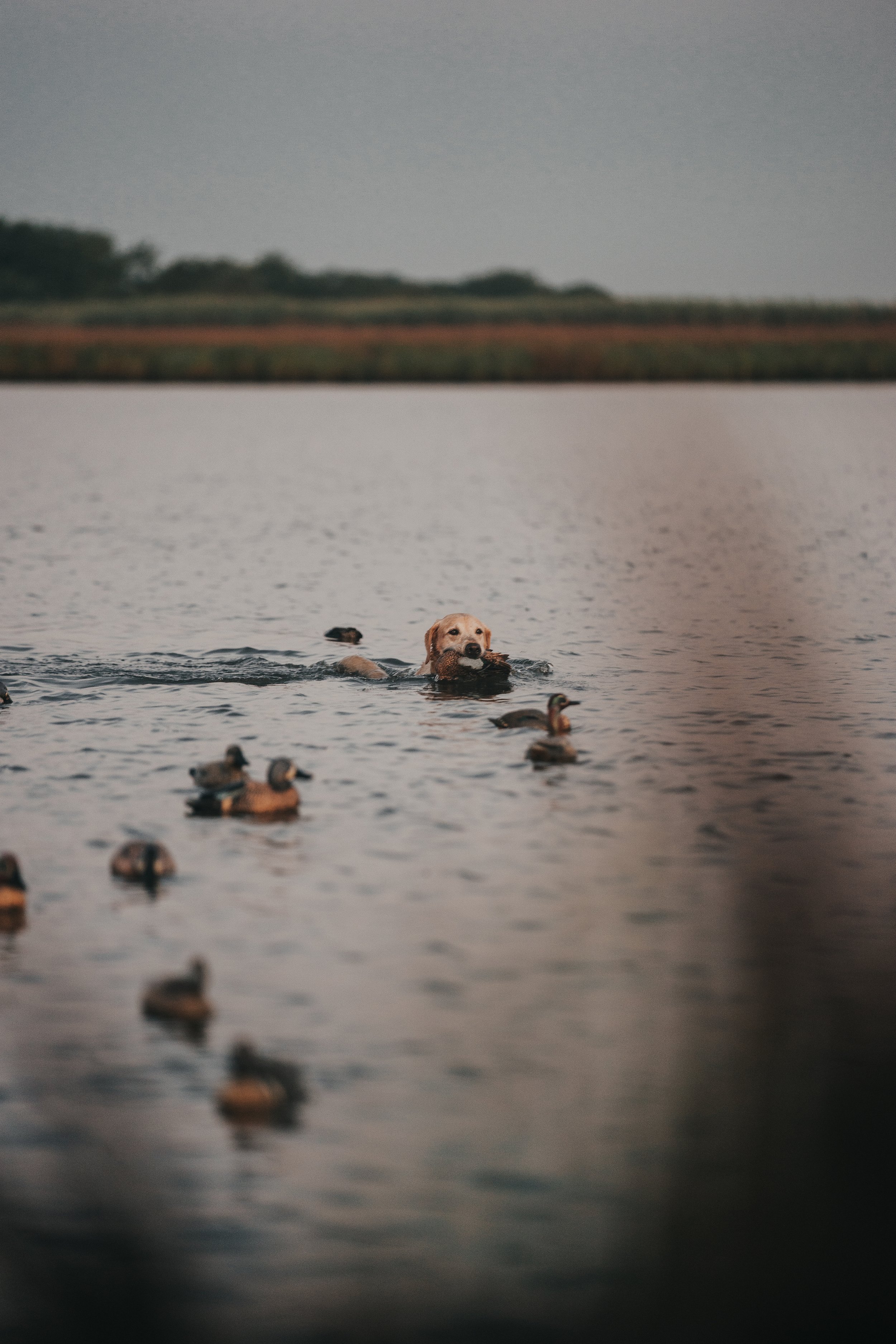
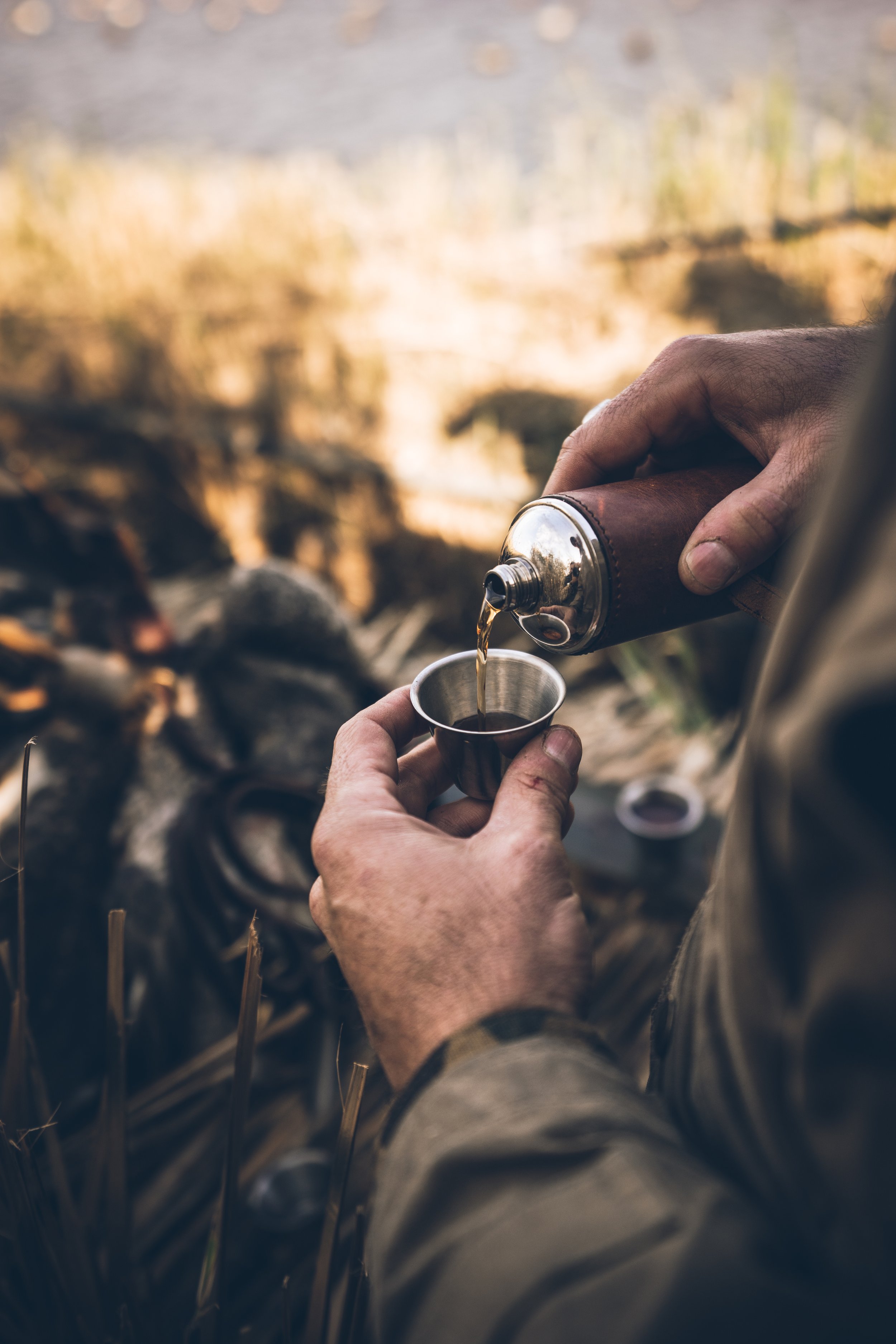
TS— Of the perspectives you’ve been subjected to, what are some of the most interesting things you’ve learned, and how has that shaped your cooking philosophy?
MW — I walked into one of our kitchens a few years back, and there was a big bus tub on one of the prep tables and it had a little square cooling rack on it. There was a whole case of halved and peeled avocados sitting on top of that cooling rack. I asked one of our staff, “What is going on here?” Then I watched him push those avocados through the cooking cooling rack. We’ve all made guacamole and we’ve all chased avocados around the bowl with a fork trying to mash it up, and to watch him so efficiently just blow through a case of avocados to make beautifully chunky, perfect guacamole in a quarter of the time, it was incredible. This was a 20-year veteran prep cook that was tired of doing it the inefficient way so he figured out a better way to do it without compromising quality. Those professional kitchen hacks are some of my favorite moments that I have been able to witness over the last decade.
I’m also fortunate to cook at home with some of my best friends who are amazing chefs. Just watching them raid a fridge to put something absolutely beautiful together in a short amount of time with very little effort is something I get fuel from. Working with what you have goes into my personal cooking philosophy. Get the best product you can, cook it in a style that gets out of the way of your technique and yourself, but also doesn’t cover up the amazingness of the product. I’m a very simple cook when it comes to home or cooking for friends. I don’t want to put so much stuff that it’s just a menagerie of flavors that covers up the integrity of the ingredients that we started with, and I think wild game is a massive component of that. It’s the best food protein you can get. This is so far beyond the conversation of organics and animal husbandry. If you harvest an animal in the wild and you make a clean kill that is stressless on the animal, it’s the best food that you can eat for the next few months. Simplicity, fewer ingredients and just try not to screw them up.
TS — You’re a bit of an alcohol aficionado. How do you think that alcohol can add to the experience of food, or even weave into recipes?
MW — The way I approach cocktails is also kind of the same way I approach food. Start with a simple idea, get the basic balance down, and then start layering flavors in a way that doesn’t cloud up the ingredients. Most people won’t know that some things are in there but work in a way that balances each other out. I’m not going to put white sugar in anything. White sugar is just going to make something sweet, it’s not going to make it interesting. So if there are sugar alternatives, like cooking with vermouth or with a lovely Belgian-style beer like Fat Tire, those things are not going to cover up the other ingredients but they’re going to add to it in a complementary way.
TS — Tell us a little bit about your relationship with hunting and the role it plays in your life.
MW — My dad was not a big hunter, but my uncles were, and my experience was standard-issue Texas hunting, where you go out in September and start filling your feeders with corn, with your blind ten feet off the ground and a hundred yards away. That was my intro to hunting, but it wasn’t all bad. We would shoot the deer, I learned how to clean and butcher them, and gaining that knowledge from my uncles was amazing. The camaraderie that surrounds it is always something that has interested me. But, I’m not really interested in hunting deer the same way that I used to, there’s just no skill in that.
A friend of mine is a fanatical duck hunter, and that first waterfowl experience was the most memorable hunt I’ve ever been on. We were on this private marsh north of Rockport, Texas, and I had never been wing shooting like that. It was a lights-out hunt. Afterwards, we got massively stuck in this dike on the way back and we spent five hours trying to get unstuck, calling friends with tractors to pull us out. It was everything surrounding that, plus it was 23 degrees that morning, which is super cold for the Gulf Coast Texas. I think the culmination of all those things really sent me down a path that I would never come back from, and duck hunting is now one of my favorite things to do. It scratches all of the itches for me.
I don’t want to sit in a deer blind by myself or with a friend and not be able to talk. I want to be able to give each other shit in the mornings in a duck blind; that is just near and dear to my soul. I’ve been waterfowl hunting avidly since about 1996 or 1997 and did all facets of public land and private land. I don’t do a lot of public land hunting for ducks now, but I’ve got two boys and I don’t feel like they should grow up thinking that the type of private hunting I do now is the way it is. I’m kind of terrified about having to go back to schlepping decoys just so they know how it is in the beginning.
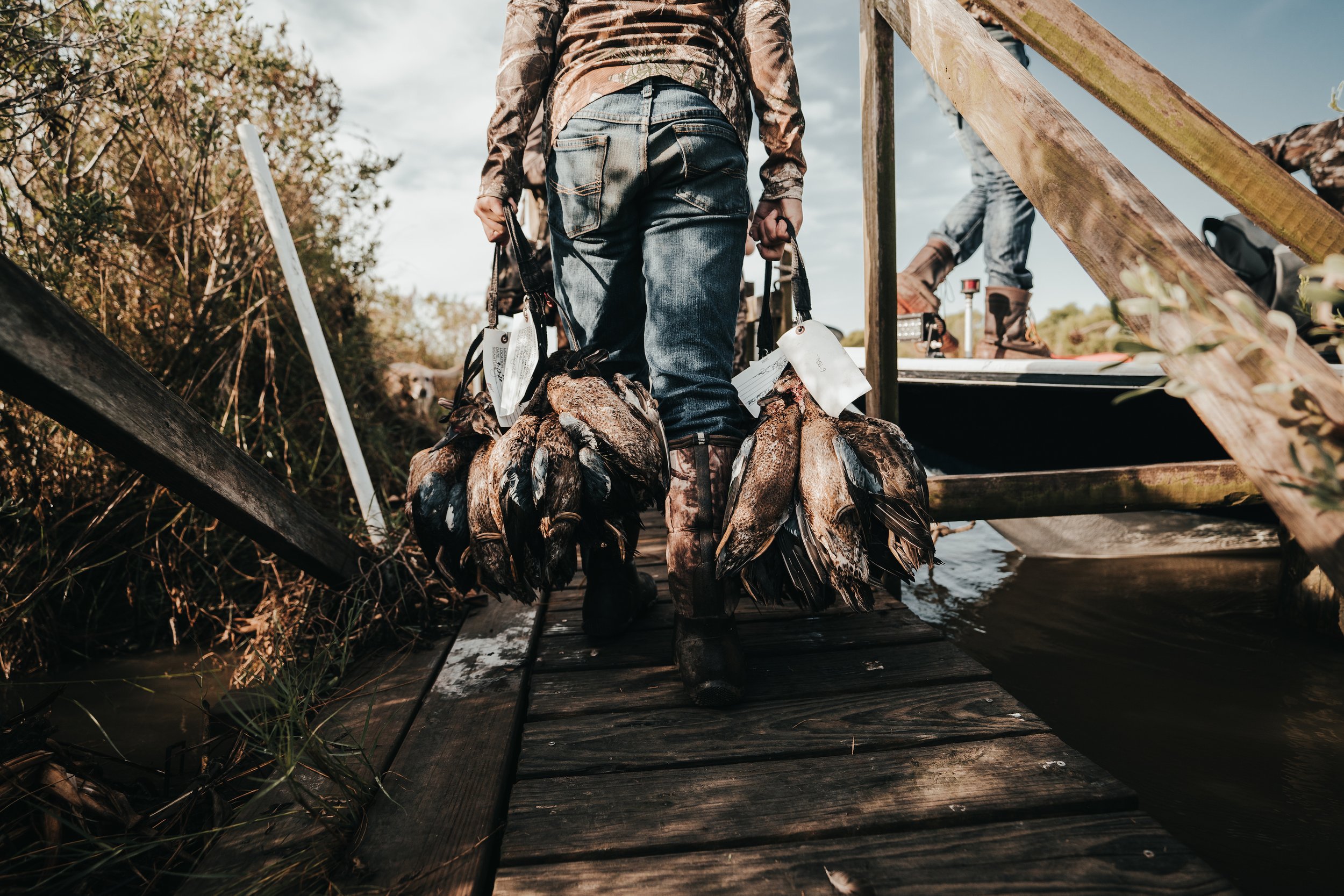
TS — Tell me about the perfect duck hunt for you.
MW — It needs to be a cool, crisp morning for sure. Nobody wants to sit in a swamp with a bunch of mosquitoes when it’s 90 degrees at 7 a.m. The people that I’m with are not newbies. There’s a place for newbies, but I want the crew to be experienced and I want them to all have different fields of expertise. While I’m making breakfast on a camp stove in the duck blind, I want everybody to be talking about their lives. When the birds start coming in, I need an old guy that is one of the most amazing callers, and he needs to be telling his stories too. Duck hunting, for me, is about the stories. I want to be shooting a lot and I want people to be taking really solid chances on hard shots and making those shots. It all comes back to that camaraderie though. I want to be around good people, and I want them to be good at what they do. When the hunt is over, we go back to the picking barn and we’re all cleaning birds together, kind of reliving the morning, and then somebody’s got a grill fired up and we’re immediately cooking. Ideally there are some guys that have been doing this a lot longer than me around and they’re talking about how “it was great today but, man, you should’ve been here in the ’70s. God, you were just beating them away with your gun barrel.” And you think, was it that way? Not important. I want to think about what this place was like in the ’70s.
TS — Where do hunting and food intersect for you?
MW — Most people don’t see the process on our commodity livestock side or our wild game side, and don’t realize that to sit down and eat a steak dinner, some animal died for that. We’re so disconnected from that meat protein that’s on a plate, and I think there’s no greater way to really drive home the importance and significance of that than when you’re eating something that you harvested yourself. It makes you want to be a better shot so that the shots are cleaner and the animal doesn’t suffer. It makes you butcher more intentionally. You want to do a good job on the post-hunt care for the meat, so none of that food goes to waste. We do a lot of wild game processing at Revival Market, and the way some people will bring in deer that they’ve shot is cringeworthy and embarrassing. You need to take care of that animal in the best way possible, chill it down quickly, make sure that everything is super clean and washed off before it goes in the cooler and gets on ice. But with some people, it’s like they’re a child with the way they didn’t take care of the animal after they shot it. For me, it all comes down to the importance of being connected to a way of life that convenience has pushed us away from. Most people don’t hunt solely for their food anymore, so we don’t understand how wildlife operates on an intimate level.
TS — Where do you see some of the problems around hunting’s current reputation, and what do you think we can do to improve that?
MW — This is a hard one, because I think our convenience-driven society now approaches hunting in that way. Why would somebody go learn how to track and spend 10 days in the Bob Marshall Wilderness if you don’t have to? A buddy of mine just got back from a nine-day trip in the “Bob” hunting elk, and he never shot one. He only saw two, and he’s a proficient tracker. I don’t think that there are people that are willing to go the distance, because it’s easier to fill a feeder with corn and shoot a deer on opening day. For me, that’s a big disconnect. As a society, we have it easier than ever. We are not really concerned about where our calories are coming from for our next meal, especially people that can afford to go hunting. But when they do go hunting, they’re not willing to put in the effort of learning to track game in the wilderness for a few days. Our culture in Texas is so far removed from that kind of mentality because it’s just so easy. So what I want is for more people to take hunting seriously, to move out of the redneck “shoot deer under corn feeders” mentality, and put effort into it. Don’t be lazy. Learn to be good and learn what it takes to make you good so that you’re more connected with the environment that you’re exploring.
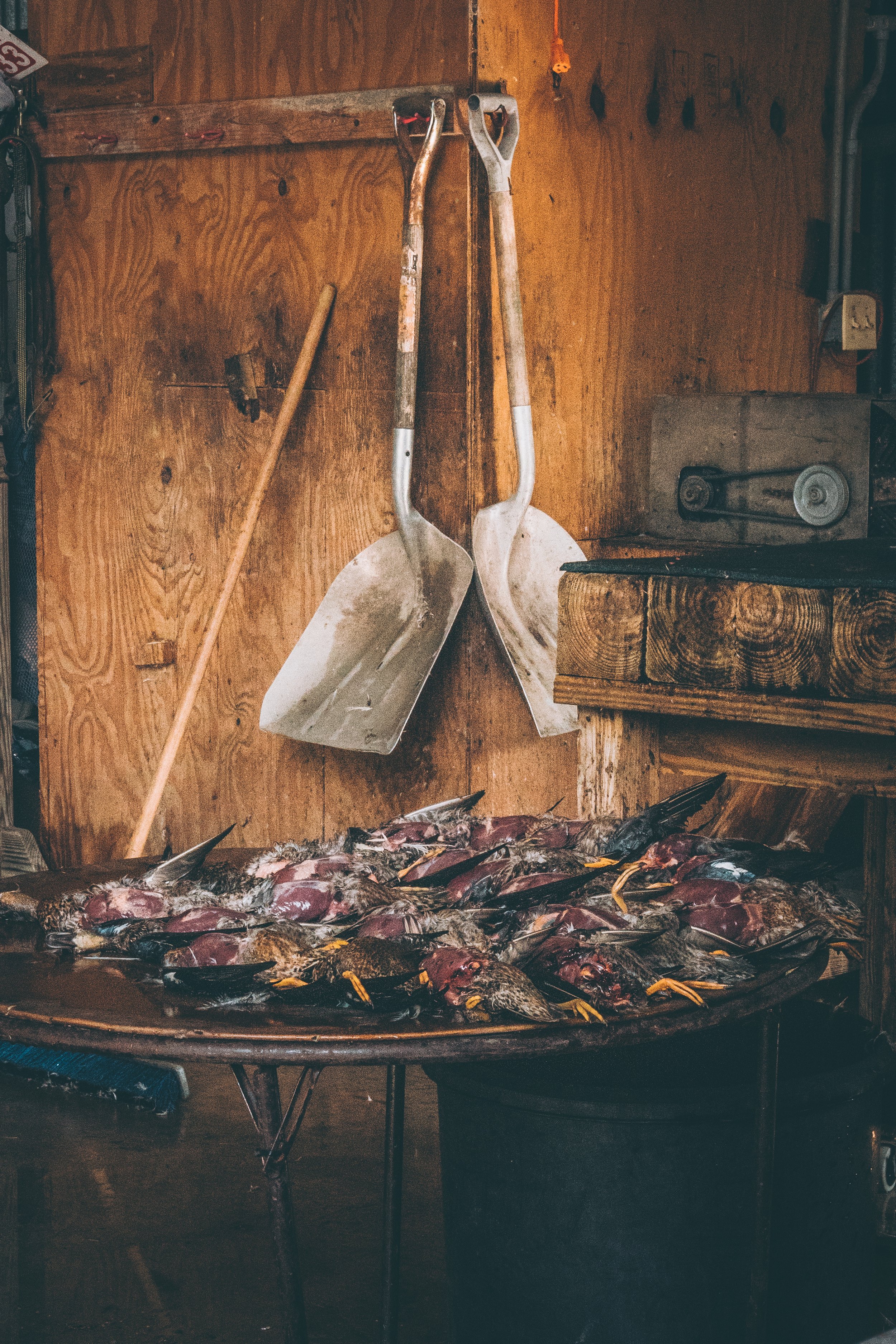
TS — You and I have talked a lot about wild game cooking events. Why do you think it’s important to have these and continue to educate people or create experiences like that?
MW — I think, again, because we’re so far removed from it. I’m not dogging this, because it can be a great thing, but if I put an elk tenderloin in a sous vide bag with a bunch of herbs, spices, and salt and I drop it in this temperature-controlled water bath that will cook it perfectly, it’s almost too easy. We need some struggle. I need to fight the natural tendencies and unpredictable nature of fire. Maybe your first time you’re going to burn everything, and I think that learning process and willingness to screw something up is very satisfying for me.
You’re not going to be a perfect cook the first time you try doing something. A new technique, a new ingredient, the odds are stacked against you, but hopefully, something about that process will make you want to do it better the next time. So I think it goes back to finding a lot of satisfaction in things that are difficult, and that is slowly leaving our brains in our modern society.
TS — It seems like wherever you go, you do it in style. Tell us a little bit about your approach to hunting, sporting traditions, and adventures in general and why you think it’s important to loosen up a little bit and have fun.
SG — You can’t take yourself too seriously. My wife did not grow up around this at all, and I remember the first time we went on a big trip. I proposed to her on a three-week-long overlanding trip to Montana and she had never camped in her life. I knew that I had one shot to make this something that could stick. I thought, “All right. I don’t mind roughing it. I don’t mind sleeping with a rock underneath a sleeping pad. But if I want this to be something that she is willing to do over and over again, I have to make it really comfortable and really good.” If it’s a beating or just a constant headache, you’re not going to want to do it again. So educating myself, preparing and getting good at stuff is part of what also makes it fun. It also helps when you’re introducing somebody else to it and you want them to like it.
I try to do a bunch of prep so that we’re not eating freeze-dried food out of a Jetboil the whole time. I probably travel heavier on cooking equipment than most people do. I want to eat well, so I’m going to bring good food, and I’m going to bring good wine. I’m going to probably bring nice plate ware and a few things to make it thoughtful. I might also bring pre-batched mezcal negronis because I don’t want to drink like a pedestrian or be measuring cocktails out one at a time for us when we’re making camp and dealing with a screaming baby or something.
TS — What is your strategy when you’re cooking wild game?
MW — In Texas, I think that most people go out and shoot white-winged doves in September at the border and then they say, “Oh man, just put a jalapeno and maybe a little cream cheese in the middle of that bird and you wrap it in bacon and then you grill it.” I’m going to probably piss a lot of people off, but that’s the lamest thing you can do with that animal. Of course, it’s going to taste good. It’s stuffed with jalapenos and cream cheese and it’s wrapped in bacon. That’s unfuckupable. Maybe don’t print unfuckupable.
TS — Oh, I’m definitely going to print that.
MW — Great. My mom can’t wait to read this. The way I approach it is that it’s just another meat protein. I need to fact-check this, but I had read somewhere that the first barbacoa documented was with the Aztecs, and they used wild pheasants. It wasn’t a cow head, it was just another broken-down, stewed meat protein that they made taste good with whatever was growing around them. We always have a bunch of ducks left over at the end of the season and we make sausage out of them, or grind it up and distribute it between our buddies and such. Don’t think that you have to make lasagna out of beef or pork, just because that’s the way lasagna has always been made. If you have Italian-style sausage made from deer or ducks, throw that in instead. Don’t get freaked out that it’s not some fancy wild game preparation. It’s a meat protein, so use it in all your normal dishes, and modify it. If it needs more fat, put more fat in it.
TS — What is one thing you’d like folks to take away from this interview?
SG — Don’t be afraid of not being amazing at something right out of the gate, and if it’s hard, just power through. Get better. Truly the most satisfying things in life come after the most difficult struggles, so lean into the struggle. Figure out how to get good, because the satisfaction on the other side is so insanely rewarding. The first time you butcher a deer, it’s likely not going to be pleasant. You’re not going to be good at it, and you’re probably going to leave a lot of meat on the bone. Your cuts are not going to be super beautiful, but you have to start somewhere, so don’t be overwhelmed by not knowing how to do something perfectly the first time you do it. Keep at it. Keep working, keep getting better. I think that we’ve gotten to the point in society where if it’s hard, we just give up, and that is not the way humankind has existed for millennia. But it’s easy to do that now, because we don’t really have significant stressors. We think we’re stressed out all the time, but a lot of that is created in our own brain. I don’t even think that was a concept until the late 1800s. That was just life. This is the easiest time it’s ever been for mankind to conveniently eat food, and I think we take that for granted.
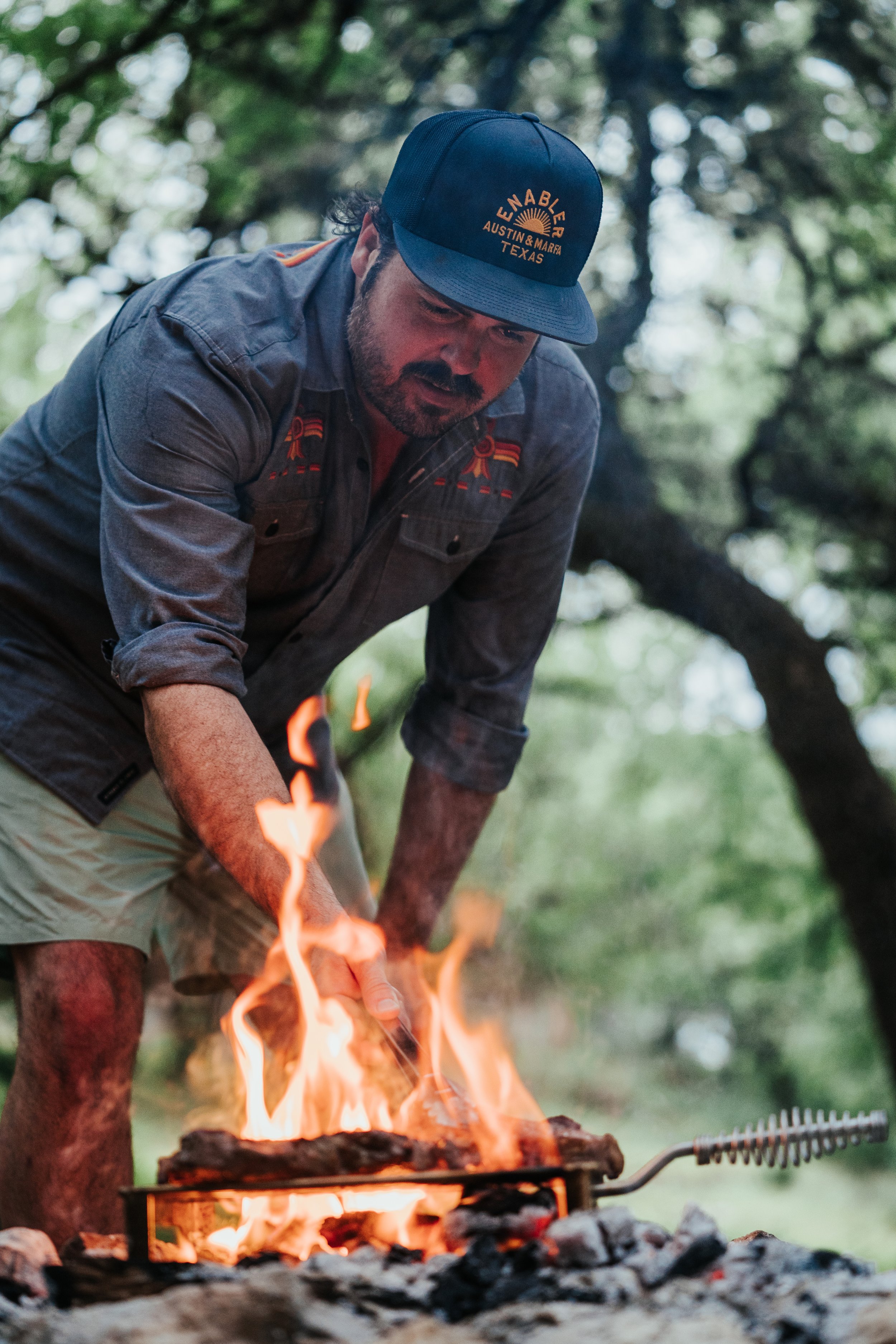
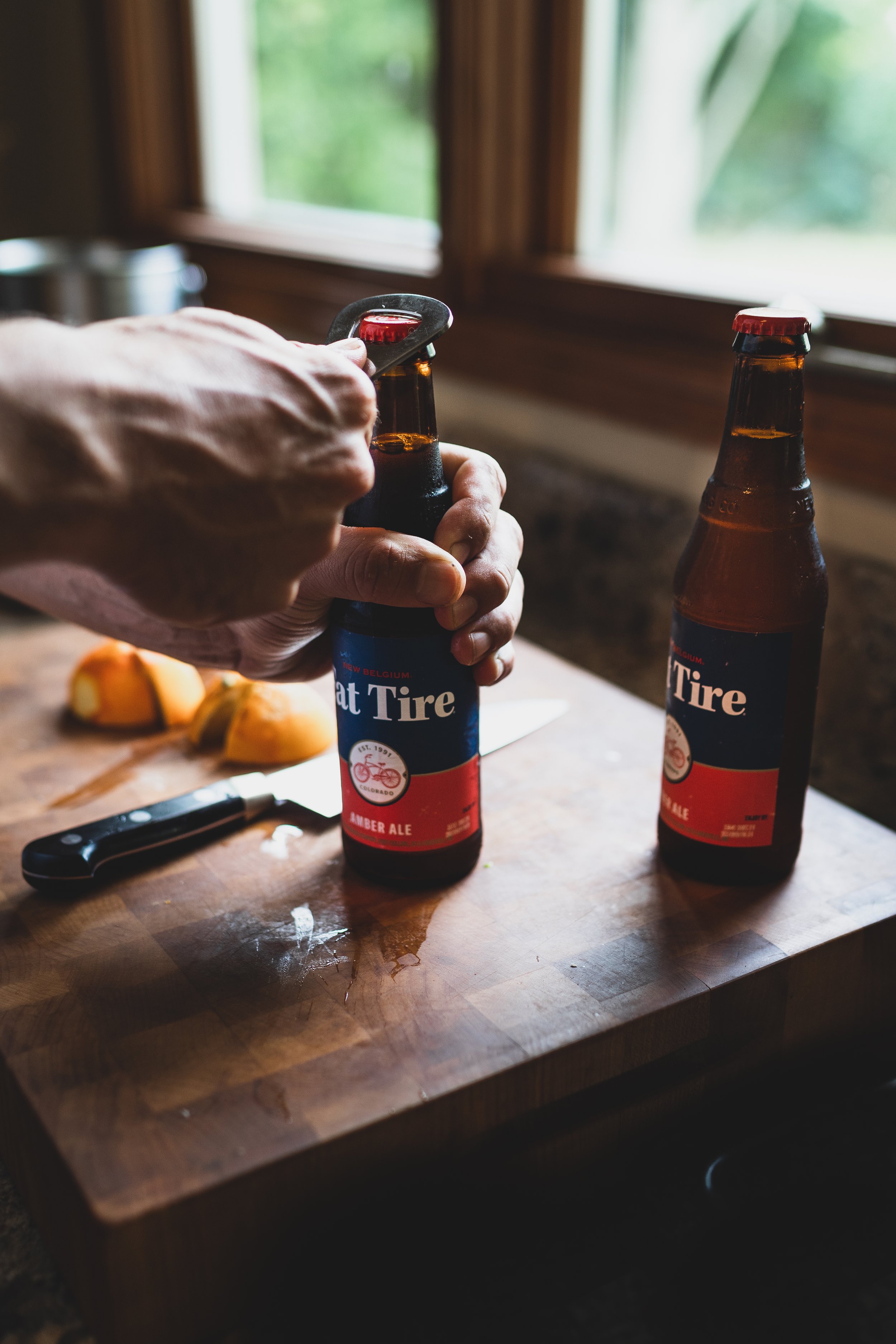
Originally Published in Modern Huntsman Volume Seven
Related Stories

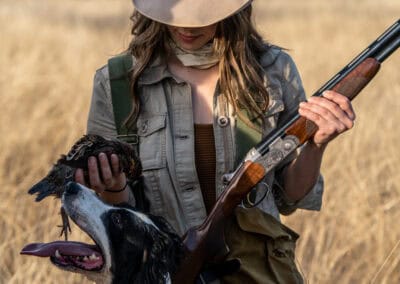

Latest Stories


